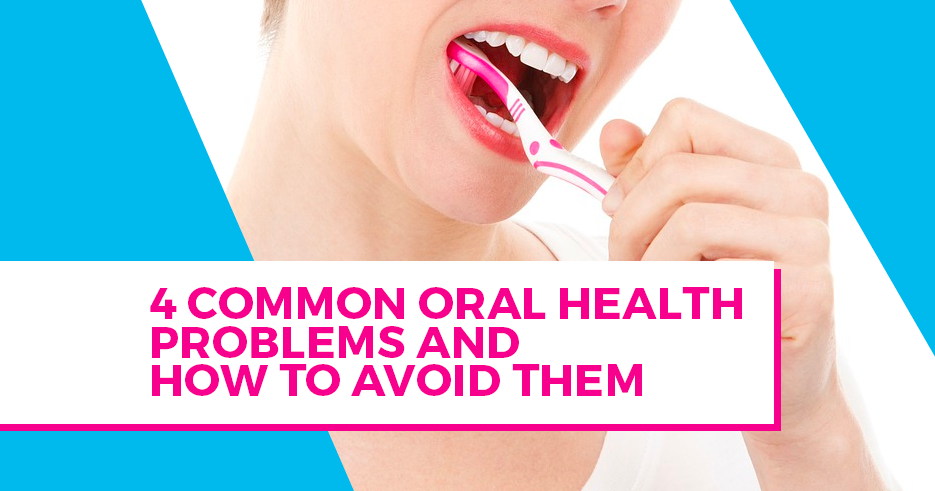Your smile is your best chance at making a great first impression. It’s the first thing people see, and it can be the key to opening a conversation, making a new friend, or even brightening someone’s day. So, if oral health issues are keeping your smile hidden, it’s time to do something about it! Below are some ways to address 4 of the more common oral health problems to get you smiling again!
1. Bad Breath
Let’s begin with one of the most-dreaded: bad breath! Bad breath, also called halitosis, can keep people from feeling confident in social situations and engaging in friendly conversation. In the vast majority of cases (over 60%), bad breath is caused by improper dental hygiene. If you’re having this problem, you can start by doing whatever you can to keep your teeth clear of bacteria and food particles—that means brushing and flossing thoroughly, especially after meals. Changing your diet to limit junk food can also help. After eating, try non-alcoholic mouthwashes or ADA-approved, sugar-free gum to combat bad breath and help clear lingering food particles stuck in your teeth. If you do these things and find you still suffer from chronic bad breath, it’s a good idea to visit your dentist to see if there’s something else contributing to the problem.
2. Tooth Decay
Tooth decay is the enemy of a bright smile, as it can leave you with discolored or even missing teeth. Decay is most often caused by a bacterial buildup and can be prevented by proper brushing and flossing regimens (2-3 times a day) and regular trips to the dentist for cleanings. Also, avoiding acidic foods such as juices, pickles, soda, and sports drinks will help to decrease erosion and decay. If you or your dentist notice the onset of tooth decay, getting it treated as early as possible will help preserve your smile.
3. Receding Gums
Receding gum lines can cause serious discomfort, causing the gums to become red, swollen and bloody. Plus, if allowed to progress to gingivitis, receding gums can eventually lead to tooth loss. Inflamed gums and missing teeth are not exactly going make you feel like smiling! Try an ultra-soft toothbrush and go gentle on your gums. Wearing a nighttime mouth guard to keep yourself from grinding your teeth and causing pain can also help with gum recession. As always, your dentist can assist you in addressing your receding gums and provide you with advice and treatment options.
4. Sores
Mouth sores, or canker sores, can cause extreme pain on the inside of your mouth on your cheek, tongue, or inside of your lip- more than enough to keep you from smiling! These type of sores—not to be confused with cold sores, which are bacterial—are caused by a variety of factors, some simple (stress, food allergies, hormones), some less so (vitamin deficiencies, autoimmune issues). They generally recede on their own after several days, but in the meantime, you can manage the discomfort by avoiding spicy and acidic foods, rinsing your mouth with salt water, or using over-the-counter pain medicines. If they are frequently recurring, however, they may be a symptom of a larger issue and you should seek advice from a health care professional.
It’s our job to keep you smiling… So, if you have concerns about any of these issues, let your doctor know so you can work together to keep your smile radiant for years to come.

